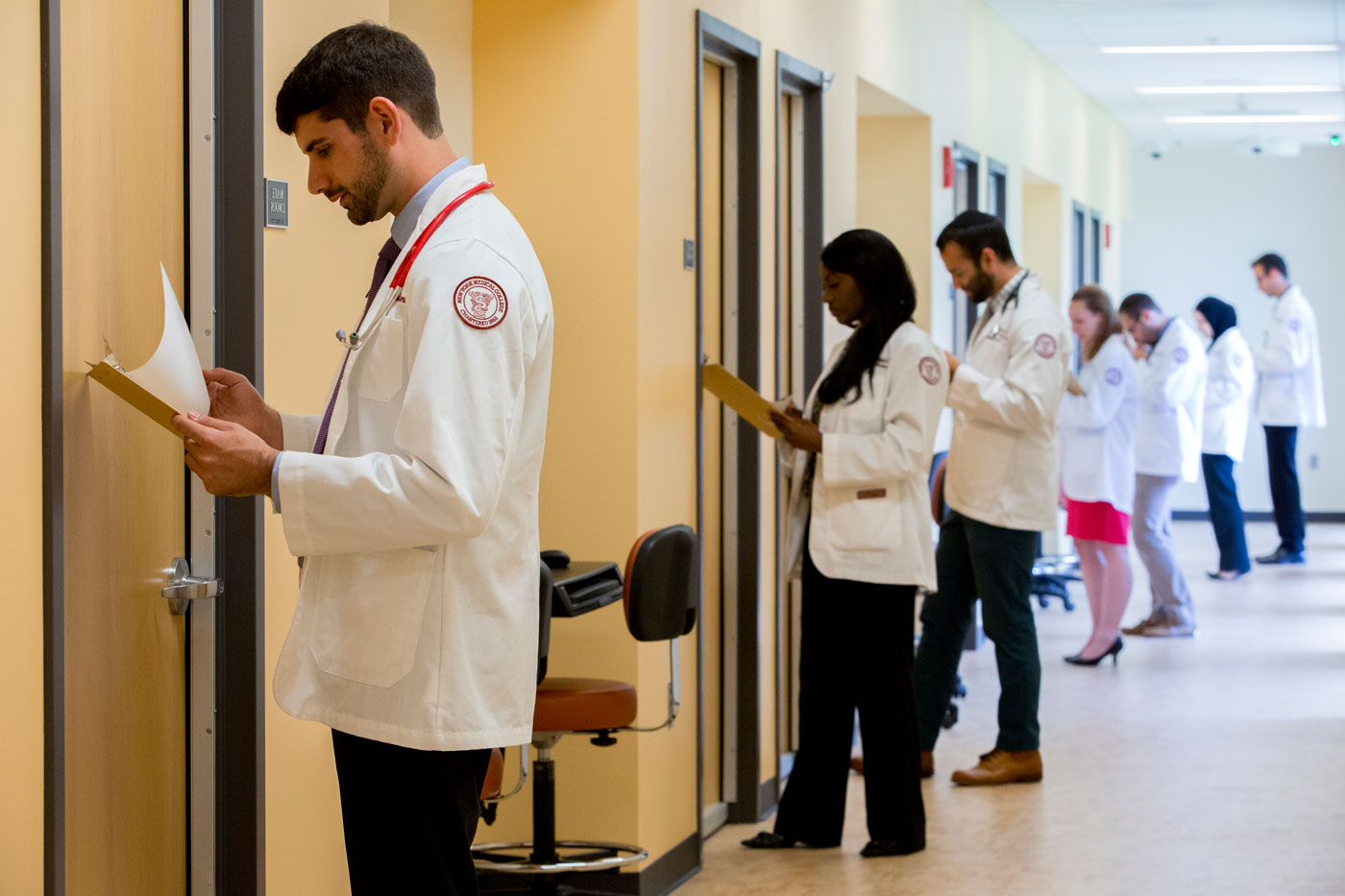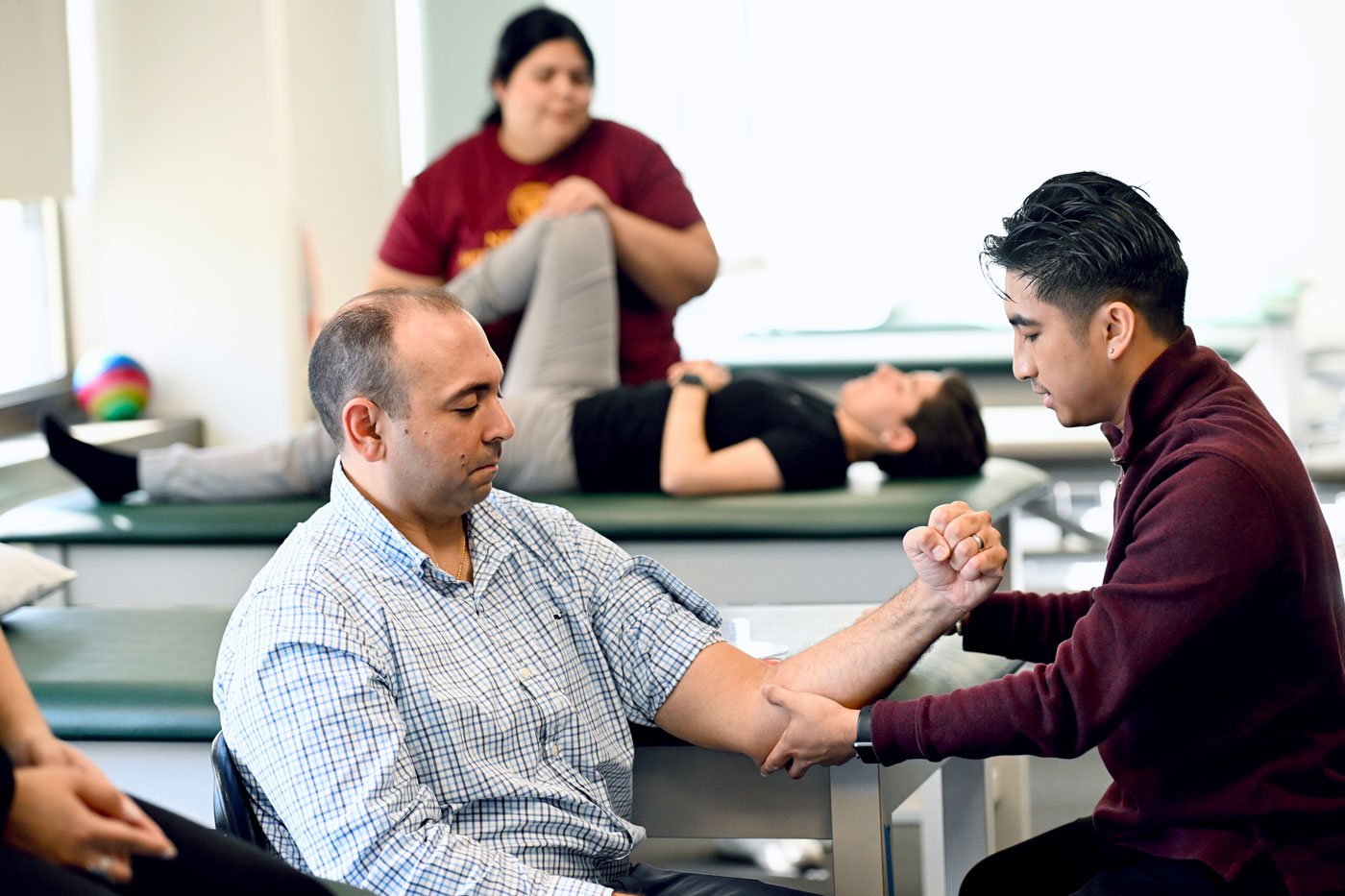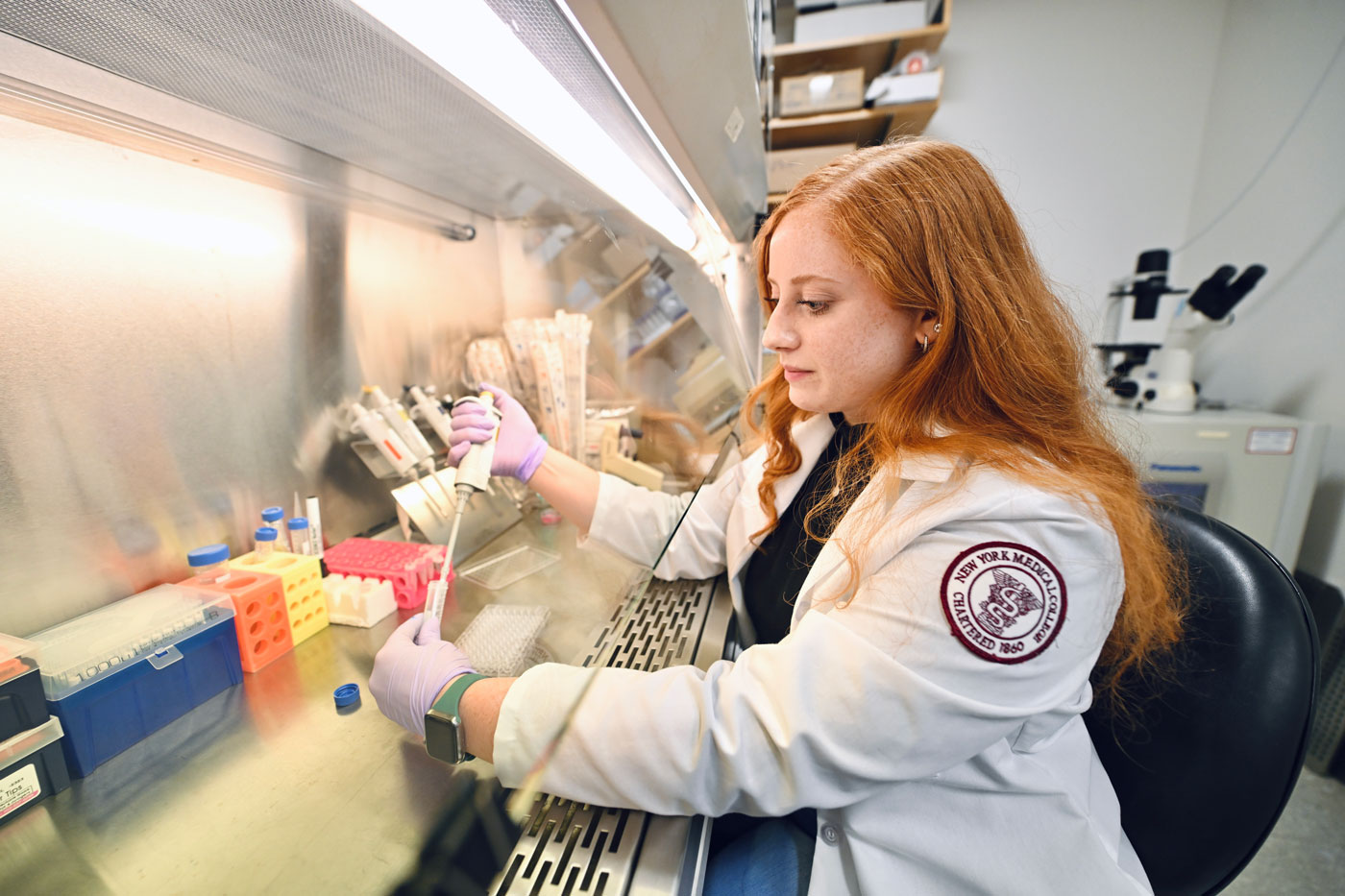
The School of Medicine offers a robust medical education that prepares you to be a competent and compassionate physician. We introduce you to real-life clinical situations early and often. With our program, you’ll be prepared to get the residency match you want.
Doctor of Medicine (M.D.)
Post-graduate Medical Education
Joint Degree Programs

With degrees in public health, speech-language pathology, and physical therapy, SHSP paves the way for healthcare solutions both regionally and nationally. You’ll be part of a diverse student body and learn from professors and practitioners across disciplines. We have a consistently high licensure pass rate and employment rate.
*Program offered both online and on campus.
**Program offered online only.
Master of Public Health (M.P.H.)
Master of Science (M.S.)
Doctoral Degrees
Joint Degree Programs
Certificates
- Children With Special Health Care Needs**
- Advanced Certificate in Emergency Management**
- Advanced Certificate in Environmental Health
- Advanced Certificate in Global Health
- Advanced Certificate in Health Administration
- Advanced Certificate in Health Education
- Advanced Certificate in Industrial Hygiene
- Advanced Certificate in Pediatric Dysphagia**
- Advanced Certificate in Bioethics*
Continuing Education

GSBMS is known for groundbreaking medical research in fields like pathology, biochemistry, and physiology. Specialize in your chosen area and gain access to our state-of-the-art facilities and labs. You’ll work with your professors and fellow researchers to develop innovative solutions to treat cancer and other major illnesses.
Master of Science (M.S.)
- M.S. in Biochemistry and Molecular Biology
- M.S. in Cell Biology
- M.S. in Microbiology and Immunology
- M.S. in Pathology
- M.S. in Pharmacology
- M.S. in Physiology
- M.S. in Accelerated Interdisciplinary Biomedical Sciences
- M.S. in Interdisciplinary Biomedical Sciences
- M.S. in Clinical Laboratory Sciences
- Dental Linker Program
Doctor of Philosophy (Ph.D.)
Joint Degree Programs
Touro Degree Programs offered on the NYMC campus
- Doctor of Dental Surgery (D.D.S.)
- R.N. to Bachelor of Science in Nursing (B.S.N.) Program
Touro College of Dental Medicine at New York Medical College
School of Health Sciences of Touro University
Educational Resources
As a student at NYMC you have access to superb educational resources that enhance your learning experience, including a state-of-the-art Clinical Skills & Simulation Center (CSSC), Gross Anatomy Lab, The Philip Capozzi, M.D. ’96 Library and the Office of Academic Excellence, which offers workshops and advisement to help you succeed academically.
Core Competencies
Scientific Knowledge
Fundamental, general, and discipline-specific scientific knowledge and skills.
Professional Competency
The ability to apply the knowledge and skills of their disciplines to real world settings to the benefit of their professions.
Information Literacy
Students will be able to recognize when there is a need for information, identify and locate information, evaluate information, effectively and responsibly use information.
Literacy in Written and Oral Communication
Students will be able to make strategic rhetorical and stylistic choices to engage the attention of the listener or reader and advance shared understanding.
Critical Thinking and Evidence-based Reasoning
Critical thinking is a purposeful and self-regulated evaluative process that engages cognitive, affective, and ethical tools intended to interrogate, to understand and to respond to complex ideas or situations.


